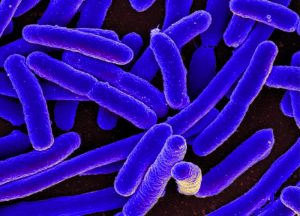By NewsDesk @infectiousdiseasenews

Iceland health officials have reported four pediatric Shiga-toxin-producing E. Coli (STEC) cases. Officials say all the children are from the capital of Reykjavik; however, all have probably been infected in Árnessýsla county or, more specifically, in Bláskógabyggð.
The source of the infection is unknown at this time. The Icelandic Food and Veterinary Authority and the South Iceland Health Inspectorate are now working to analyze the origin of the infections and stop further spread.
Health officials say individuals who have been in Árnessýsla (Bláskógabyggð) in the past 2-3 weeks and sickened with bloody diarrhea are encouraged to seek medical advice so that they can check whether they have been infected with STEC.
The symptoms of STEC infections vary for each person but often include severe stomach cramps, diarrhea (often bloody), and vomiting. If there is fever, it usually is not very high (less than 101˚F/less than 38.5˚C). Most people get better within 5–7 days. Some infections are very mild, but others are severe or even life-threatening.
Subscribe to Outbreak News TV on YouTube
The Icelandic Food and Veterinary Authority recently analyzed the presence of pathogenic bacteria in meat in the Icelandic market. It was found that STEC bacteria are found in 30% of lamb and 11.5% of beef. In addition, the bacteria can be found in unpasteurized milk
Update: iGAS outbreak in Essex
England: Confirmed mumps cases highest in five years
Sweden: New outbreak of Yersinia infection is being investigated



One thought on “Iceland reports 4 STEC infections in Árnessýsla county children”